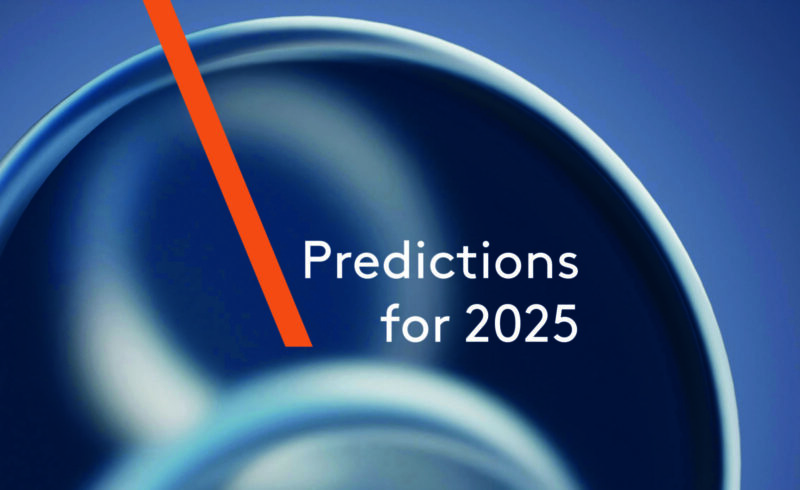At this year’s Procurement & Supply Chain LIVE conference, leaders and practitioners came together to explore the future of the functions.
From supply chain resilience and supplier partnerships to decarbonisation and digital innovation, the discussions revealed how much is changing and what procurement and supply chain leaders must do to keep pace.
In this article I share key takeaways from the conference and highlight what they mean for leadership talent across supply chain and procurement functions.
Strengthening Supplier Relationships
A recurring theme across the conference was the importance of trust-based supplier relationships. As Martine Hornseth of Sedex reminded attendees, you cannot address your own risks – or those of your suppliers – without a clear vision for the business and an open dialogue with partners.
Sam de Frates of Mars shared how the company builds transparency into its network through a risk register, scenario planning, and regular broadcasts to suppliers, ensuring they share accountability for resilience strategies. Rather than “scaring suppliers into resilience,” he argued, leaders should aim to inspire and excite them about the opportunities that resilience can bring.
Suppliers should no longer be considered only transactional partners; instead, they should be viewed as co-creators of value and resilience. The talent implication is that teams need leaders who can balance data-driven decision making with the interpersonal skills required to nurture trust, have difficult conversations and collaborate on shared goals.
Decarbonisation Through Supplier Collaboration
Decarbonisation is now front and centre for procurement leaders, and the conversation made it clear that suppliers are key to progress. Iris Wolst-van der Harst, CPO of Equans Netherlands, described her organisation’s approach: bringing suppliers and customers together in “climate meetings” to solve challenges collectively.
Equans sets consistent sustainability targets across its procurement function, tracks the number of climate meetings held, and measures supplier certifications and innovations. One striking example was sourcing a recyclable, solar-panelled parking deck – an unusual but transformative solution that required finding a new local supplier, with the customer ready to commit to the higher costs involved.
The session also highlighted two pressing challenges:
- The lack of uniform data standards
- The limited budgets in procurement for sustainability initiatives.
Iris advised taking a step-by-step approach, finding allies across the business and even collaborating with competitors to drive market-wide change.
The talent implication here is that procurement functions need people who are systems thinkers and influencers, capable of connecting internal stakeholders, customers and even competitors to move decarbonisation forward.
Data, Digital Twins and AI
Data was a thread running through every conversation, and digital twins were singled out as a powerful enabler of supply chain transparency. Both Mars and RS Group have invested in digital twin technology to:
- Map vulnerabilities
- Model scenarios
- Plan for disruption before it happens
Generative AI was also top of mind. While initial fears about AI replacing roles remain, companies like Equans are showing how AI can augment procurement. By running pilots and bringing teams into the conversation, they are helping people see AI as a partner in innovation, not a threat.
However, data is only as good as the people using it. As one panellist reminded delegates: “Data comes from people.”
Procurement leaders therefore need teams who can interpret insights, connect the dots across functions, and embed predictive rather than reactive practices into decision-making.
Risk and Resilience: A Strategic Imperative
The Risk and Resilience Forum underscored how supply chain risk has become a board-level priority. A KPMG study was cited showing it as the second-highest concern for businesses, with risks ranging from geopolitical tensions to cyberattacks.
Sam de Fratas emphasised the need for both long-term and short-term approaches: investing in generational resilience (such as sourcing responsibly from developing nations) while maintaining dynamic agility to respond to near-term shocks.
Carolyn Park of RS Group highlighted the role of supplier collaboration and digital tools in creating supply chains that can flex and withstand disruption. But with only 14% of UK businesses reviewing risks posed by immediate suppliers – and just 7% looking deeper into the chain – it’s clear that significant gaps remain.
For leaders, the challenge is twofold: investing in the right technologies while also ensuring teams have the cross-functional mindset and communication skills to break down silos and embed resilience across the business.
The Talent Agenda
Across the conference, one conclusion stood out: leadership in procurement and supply chain is being redefined. Leaders today need to navigate complexity, build coalitions, and set the vision for resilience and sustainability.
Key capabilities emerging from the discussions include:
- Vision and influence: The ability to articulate a clear strategy for risk, resilience and decarbonisation, and to bring suppliers, customers, internal stakeholders and even competitors along on the journey.
- Systems thinking: Seeing beyond silos, connecting interdependent risks and opportunities, and using tools like digital twins to inform enterprise-wide decisions.
- Adaptability in uncertainty: Responding with agility to geopolitical shocks, cyber threats and natural disasters, while embedding long-term resilience into strategy.
- Commercial courage: Making the case for investments in sustainability and technology, even when budgets are tight, by reframing them as drivers of competitive advantage.
- Digital leadership: Not needing to be the data scientist, but knowing how to harness AI, analytics and predictive modelling to guide smarter decisions.
Procurement and supply chain leaders will increasingly be measured not only on efficiency, but on how effectively they drive resilience, enable change, and embed sustainability into the business.
For a conversation about your organisation’s talent strategy to address the evolving requirements across supply chain and procurement, please don’t hesitate to get in touch.
–
Melissa Selvakumar

Principal | Consumer Markets | EMEA
T: +442039624641 E: melissa.selvakumar@weareprocogroup.com




